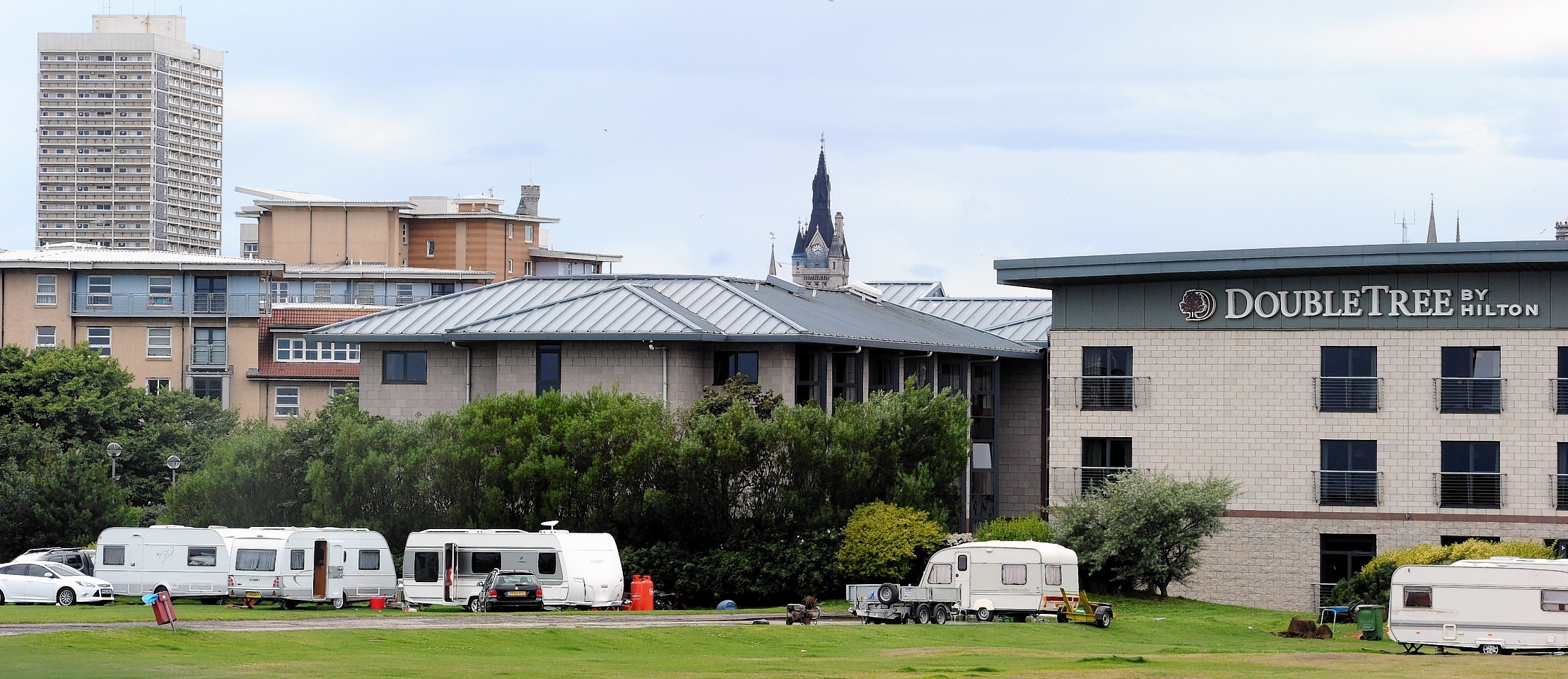Scottish prosecutors have rejected calls for a legal review to give police more powers to crack down on illegal gypsy-traveller encampments across the north-east.
The Crown Office and Procurator Fiscal Service (COPFS) has confirmed it has no plans to change its current policy of a presumption against prosecution, which is based on European human rights law.
In a written response to a request from Aberdeen City Council, the COPFS also insisted it was up to local police to enforce existing legislation.
However, senior officers in Aberdeen have said the guidance, first issued by the former Lord Advocate Dame Elish Angiolini, renders the force “powerless” to deal with problem groups in and around the city.
North-east MSP Richard Baker said confusion between police and prosecutors was “farcical”, and said it was time for the Scottish Government to step in and conduct a full review of the law.
The government has insisted that any decisions over prosecutions are a matter for the Crown Office.
A spokeswoman added last night that separate guidance for local authorities on the management of illegal camps was due for review in the autumn.
Tensions between the travelling and settled communities in the Aberdeen area have been heightened in recent years by incidents of fly-tipping, the cancellation of public events and significant clean-up costs to the public purse.
The Trespass (Scotland) Act 1865 allows police to move on gypsy-traveller encampments, but only if there is somewhere for them to go.
The guidance states there should only be a prosecution if an alternative site has been identified and the group refuses to relocate, if there is a “severe” road safety or public health hazard or if a group returns to an area after being repeatedly evicted.
Aberdeen City Council chief executive, Angela Scott, wrote to Lord Advocate Frank Mulholland expressing concern about the “potentially volatile” situation in the area earlier this year.
In a response on behalf of Mr Mulholland, Gertie Wallace from the COPFS’s policy division said any changes would be “difficult in isolation”.
The letter added: “Any review would have to be undertaken in conjunction with the Scottish Government, local authorities and the police.
“I am not aware of any such review being in contemplation.”
